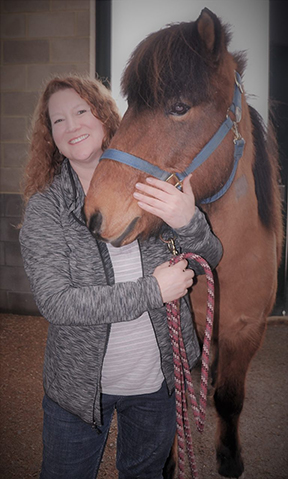-
Wellness
-
Suppleness
-
Fluidity

Because you ask a lot of your horse!
Raileen began riding as an infant in a backpack, and Horse is her second language. She was green-breaking and rehabilitating traumatized equines by the time she was a young teen in North Texas, and she has accumulated a lifetime of experience with horses as a competitor, trainer, wrangler, and barn manager. She holds a B.S. from Texas A&M University in Agricultural Journalism (emphasis: Wildlife Ecology) and an M.Ed. in Curriculum & Instruction (specialty: Environmental Education). Although she has an extensive professional background in education, non-profit management, and quality consulting, Raileen is happiest outdoors, working with her hands to help humans and animals/nature connect in mutually beneficial ways. Bodywork provides her a very satisfying way to increase wellness in horses and help ensure they have bright futures with caring riders. “I love watching a horse transition from being tense and sore to sighing in relief and moving out more freely,” she says with a big grin. “It just makes my day, every time!”
Raileen recently wss named October 2019 Practitioner of the Month through Holistic Animal Courses

Whether your horse is used for stock, barrels, racing, jumping, breeding, showing, or carrying around your grandchildren... he can’t give you his best if he doesn’t feel his best.
Our approach is very practical – find out where your horse feels sore and do everything we can to reduce pain and help restore elasticity, suppleness, and range of motion.
A typical session includes full-body massage and stretching, with a focus on areas that are problematic. Kinesiology taping and craniosacral massage are sometimes integrated to support specific goals such as reducing inflammation or establishing trust with a horse recovering from trauma.
Recommended care schedule:
Because you ask a lot of your horse!